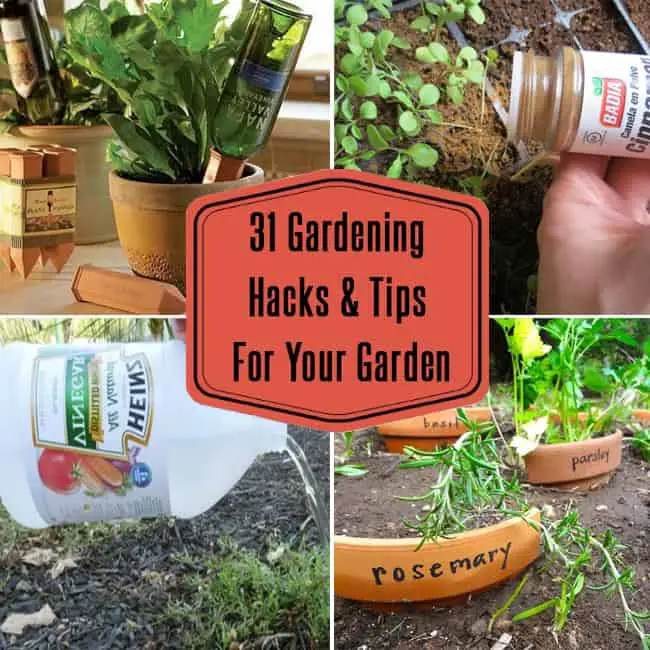7 Pest Repelling Plants For Your Garden
As a gardener, I was amazed to discover that certain plants can naturally repel pests while adding beauty to your outdoor space. Imagine a garden where vibrant blooms not only delight the eye but also deter unwanted insects.
These pest-repelling plants offer a double benefit that is both practical and visually pleasing. Learn how incorporating these plants can turn your garden into a peaceful sanctuary for you and your plants.
Continue Reading to Understand These Key Points:
- Marigolds and chrysanthemums naturally repel a variety of pests effectively.
- Mint and basil act as natural repellents against insects like spiders and mosquitoes.
- Citronella grass provides a pleasant and effective way to repel mosquitoes in your garden.
- Planting these pest-repelling plants not only enhances your garden but also helps in eco-friendly pest management.
Marigolds
Marigolds repel mosquitoes, plant lice, and rabbits with their strong fragrance and natural insecticidal properties. They produce essential oils like pyrethrum, a natural insecticide that acts as a potent defense against bugs.
The scent of marigolds deters pests, making them ideal for pest control in gardens.
By strategically planting marigolds near entry points or among vegetable patches, a protective barrier against unwanted insects can be created. Marigolds are easy to cultivate, requiring minimal maintenance. Their vibrant blooms not only enhance the garden’s aesthetic appeal but also keep pests away.
This dual functionality makes marigolds a popular choice for natural and effective pest control in gardens.
Chrysanthemums
Chrysanthemums, like marigolds, have natural insecticidal properties, making them a valuable addition to gardens for pest control. These vibrant flowers contain pyrethrum, a potent natural insecticide that targets a wide range of pests including ants, roaches, bed bugs, spider mites, ticks, and silverfish.
Japanese beetles and roaches are particularly deterred by chrysanthemums.
An advantage of chrysanthemums is their easy cultivation and maintenance, making them a popular choice for eco-friendly pest management.
By planting chrysanthemums strategically near entry points or in vegetable gardens, one can effectively repel insects while enhancing the landscape’s beauty.
Mint
Mint, a perennial plant with a strong scent, acts as a natural repellent against spiders, ants, and mosquitoes in gardens. Its plant-based repellents are effective in deterring insects, especially mosquitoes.
Mint’s aromatic properties can be used to make homemade insect repellent sprays.
To control its invasiveness in gardens, it’s best to grow mint in containers. This method helps manage its growth and prevents it from spreading to other plants. Mint thrives in USDA Zones 3 to 11, needing sunlight and well-draining soil.
Planting mint strategically not only protects the plant from pests but also shields nearby plants from insects due to its potent aroma.
Basil
Basil, with its aromatic leaves and culinary uses, is a natural repellent against houseflies and mosquitoes. Thriving in full sun and moist soil, this herb is easy to grow in gardens or pots. The strong scent of basil plants deters pests, making it an effective insect repellent.
Placing basil near windows and doors can help keep insects out of your home. Besides repelling insects, basil is a versatile culinary herb. Its ability to ward off pests and enhance dishes makes it a valuable addition to any garden.
Consider adding basil to your indoor or outdoor spaces for both its flavor and insect-repellent properties.
Citronella Grass
Citronella grass, scientifically known as Cymbopogon nardus, is a renowned plant for its exceptional ability to repel mosquitoes. The strong citrus scent of citronella grass acts as a natural insect repellent by masking other attractive scents that might draw mosquitoes.
This grass contains citronellal and geraniol, natural compounds known to deter mosquitoes effectively. It’s commonly used in candles, oils, and sprays for outdoor settings to keep mosquitoes at bay.
Whether grown in pots or in the ground, citronella grass provides a natural and pleasant way to repel mosquitoes in your garden.
Lavender
Lavender, a fragrant herb with beautiful purple blooms, is renowned for its ability to repel mosquitoes, flies, and moths.
It thrives in arid conditions, making it a resilient and low-maintenance plant for insect control in gardens.
Clustering lavender near entry points can effectively prevent insects from invading your home.
Fragrant Pest Deterrent
Utilizing the natural properties of lavender as a fragrant pest deterrent in gardens can effectively repel mosquitoes, flies, and moths due to its strong scent and visual appeal.
Lavender, a fragrant herb, naturally repels insects and requires low maintenance in hot, dry conditions. Placing it near entryways can deter pests from entering your home.
The fragrant oil from lavender can be used in sachets or essential oil blends to ward off pests indoors. Lavender not only adds aesthetic charm but also serves as a versatile plant, offering beauty and protection against unwanted pests.
Easy to Grow
Cultivating lavender in your garden is a simple process that produces a fragrant herb known for repelling pests naturally. Lavender’s aroma is effective against mosquitoes, flies, and moths, making it a great addition to sunny garden areas.
Creating sachets or essential oils with lavender can enhance its insect-repelling properties. Planting lavender near doorways and windows can help keep insects out of your home.
This plant not only adds beauty to your garden but also serves a practical purpose by warding off pests, making it a popular choice for insect control.
Chives
Chives, scientifically known as Allium schoenoprasum, emit a strong odor that helps deter Japanese beetles and carrot rust flies.
Their aromatic properties make them a natural pest deterrent in the garden.
Planting chives near vulnerable crops can contribute to safeguarding them against insect infestations.
Natural Pest Deterrent
With their distinctive aroma, chives from the Allium family naturally deter Japanese beetles and carrot rust flies in gardens. These herbaceous plants emit a strong scent that acts as a pest control method by repelling specific insects like Japanese beetles, known for damaging crops.
Planting chives near vulnerable plants offers protection against common garden pests without the need for chemical pesticides. The pungent aroma of chives makes them a valuable asset in gardens seeking natural pest control solutions.
Easy to Grow
An excellent choice for gardeners looking to cultivate pest-repelling plants that are easy to maintain and grow is the herbaceous chive plant.
Chives, known for their onion-like flavor, serve as a natural insect deterrent, specifically targeting pests like Japanese beetles and carrot rust flies. By planting chives near vulnerable crops, gardeners can protect nearby plants without resorting to chemical pesticides.
These low-maintenance herbs not only offer practical benefits but also enhance the aesthetic appeal of the garden with their vibrant green foliage and delicate purple flowers.
With their ease of growth and pest-repelling properties, chives prove to be a valuable addition to any garden seeking a natural and visually appealing way to combat unwanted insects.
Can Pest Repelling Plants Be Used to Replace Natural Pesticides for Houseplants?
Yes, you can use pest-repelling plants in your house to replace natural pesticides for houseplants. Plants like lavender, mint, and citronella are known for repelling pests and can be a natural alternative to using pesticides on your indoor plants.
Final Thoughts
Incorporating pest-repelling plants like marigolds, chrysanthemums, mint, basil, citronella grass, lavender, and chives into your garden adds beauty and fragrance while serving as a natural defense against unwanted insects.
A study by the University of Florida found that planting these specific plants can reduce the presence of mosquitoes by up to 50%, creating a more enjoyable and bug-free outdoor environment for you and your family.






